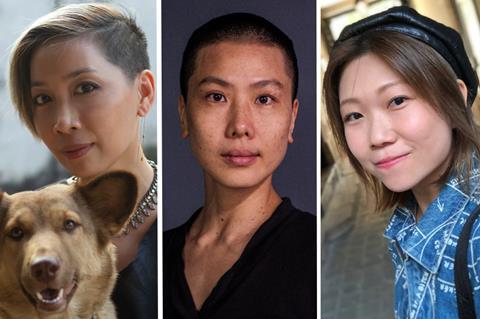
Female filmmakers from Asia struggle to gain recognition in the horror and thriller genres, but not at South Korea’s Bucheon International Fantastic Film Festival (Bifan, July 7-17).
Bifan has long supported emerging and established female genre filmmakers and the 26th edition of the festival is no different, with works by eight female filmmakers across the two main feature competitions alone.
Those attending this year’s event include US-born Laotian Mattie Do, who will act as a mentor at the NAFF Fantastic Film School; Malaysia’s Tan Chui Mui, who presents fantasy thriller Last Resort at NAFF’s It Project market; and Hong Kong’s Gilitte Leung, whose supernatural thriller Social Distancing plays in the Bucheon Choice competition.
Do is considered Laos’ first and only female director and has made a string of well-received genre features to date ranging from 2012 debut feature Chanthaly to supernatural drama Dearest Sister, which premiered at Bifan in 2016 and became Laos’ first entry for the best international feature at the Oscars (it was not shortlisted). Her most recent feature, time travel thriller The Long Walk, premiered in Giornate degli Autori at Venice in 2019 and won the best director at Sitges.
When asked about the lack of women genre filmmakers in Asia, Do wonders “if it’s something deeply ingrained culturally in our line of work, built from the false narratives around women being unreliable, overly emotional or too complicated to be trusted with not only film, but even top positions in other careers”.
Speaking to Screen about why she chooses to focus on genre filmmaking, Do says: “I love that genre provides a vehicle for me to make a statement and go beyond the limits of reality or to push the boundaries to an extreme. Growing up with a mixed-ethnicity background, it only felt natural for me to tell supernatural stories that gave me such thrills as a child.”
Her gateway into the genre came via what some might consider an unexpected route – ballet. “It would surprise most people to connect ballet to horror, but most ballets are genre adjacent,” says Do. “There are ghosts, swashbuckling pirates, time travel, witches, and even a were-swan. In Swan Lake, Odette turns from a swan into a human girl when the full moon comes out.”
Constantly proving

Hong Kong director Leung has shifted to horror with her second film, Social Distancing, following LGBTQ+ romantic drama Love Me Not in 2012. “Whether it’s genre films or not, we face the same challenges,” says Leung.
“There’s always the big question of can she do it? Some people would even ask if it’s better to get a male director to direct a script written by a female director. We must constantly prove ourselves and our vision.”
While Social Distancing is positioned as a supernatural thriller, Leung insists it is really about human nature. “Horror stories allow me to think out of the box,” she adds. “My imagination can run wild without boundaries. I don’t have to worry if something is logical or not. The real and the unreal, and the certainty and uncertainty, create endless possibilities.”
Female-driven collaboration
Apart from the Fantastic Film School, which offers genre film production education and networking for emerging Asian filmmakers, NAFF also runs a project market with 24 competition titles. The include 13 It Projects, of which four are by female directors: A Myth by Maaria Sayed, Carrion by Renata Pinheiro, Left Hand Of The Devil by Mutsumi Kameyama, and Last Resort by Tan Chui Mui.
Last Resort is a female-driven regional collaboration between Malaysian director Tan, Manila- and Breda-based producer Arleen Cuevas (Whether The Weather Is Fine) and Japanese actress Kiki Sugino (Hospitalité).
Set on a small magical island, the story follows a Japanese single mother who uses a personalised travel agency as a front for a suicide business to help people who can afford to end their life comfortably in a paradise-like haven. The film will be shot in the Philippines.
Tan says the project was born out of a fantasy of Dutch film programmer and art curator Gertjan Zuilhof, who wrote the script during the Covid-19 lockdown and is also the writer of Bird Woman by Japan’s Tokio Oohara, which is in Bucheon Choice competition for short films.
“My films were very personal. This is the first time I’m directing someone else’s script,” says Tan. “To get into someone’s world and see things with a different perspective will be a new challenge for me.”
Tan debuted with 2006 coming-of-age drama Love Conquers All, which picked up both Busan’s New Currents Awards and Rotterdam Tiger Award. Her latest film, Barbarian Invasion, which won the jury grand prix at last year’s Shanghai film festival, also stars herself as a washed-up actress. To prepare for the role, she undertook intense martial arts training.

























No comments yet